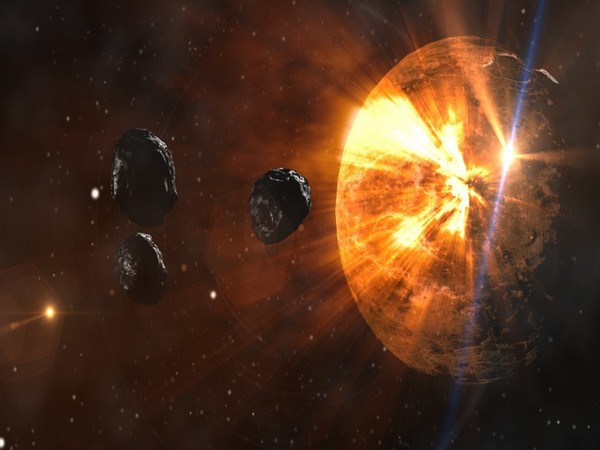New milestone: 30,000 near-Earth asteroids discovered in our Solar System

- Country:
- France
Astronomers have discovered 30,039 near-Earth asteroids (NEAs) in the Solar System, with a majority of them discovered in the last decade.
NEAs are rocky bodies that orbit through our Solar System and pass close enough to our planet to pose an impact risk. They make up about a third of the roughly one million asteroids discovered so far in our Solar System.
The first near-Earth asteroid, (433) Eros, was discovered on 13 August 1898. The roughly 30 km stony asteroid's orbit brings it to within around 22 million km of Earth - that's 57 times the distance of the Moon.
🚨🪨A new #asteroid milestone has been reached: 30 000 near-Earth asteroids have now been discovered, and with new telescopes and technologies being developed that number is rapidly climbing👉https://t.co/WoRPA5BLA3 pic.twitter.com/k4nQzw1fn5
— ESA Operations (@esaoperations) October 12, 2022
The Near-Earth Object Coordination Centre (NEOCC) in ESRIN, Italy, is home to ESA's asteroid experts and risk assessors. The team activates its network of telescopes around the globe to get observations of new asteroids discovered and determine their impact risk, while also chasing up old asteroids that haven't yet been deemed safe.
Currently, none of the NEAs discovered so far are a concern. For those that could impact later, we have plenty of time to study them and prepare a deflection mission, the agency said in a statement.
Watch this video to know more about NEAs and what ESA is doing about the risks they pose, helping to safeguard Earth.
Video Credit: ESA
Astronomers are currently hunting for medium-sized asteroids a few hundred metres in diameter. Many are still out there, waiting to be discovered, and at smallish sizes they’re not quite as easy to find, according to the agency.
"As this new 30,000 detection milestone shows, and as new telescopes and methods of detection are built, it's only a matter of time until we've found them all," said Richard Moissl, ESA's Head of Planetary Defence.
- READ MORE ON:
- near-Earth asteroids
- ESA










